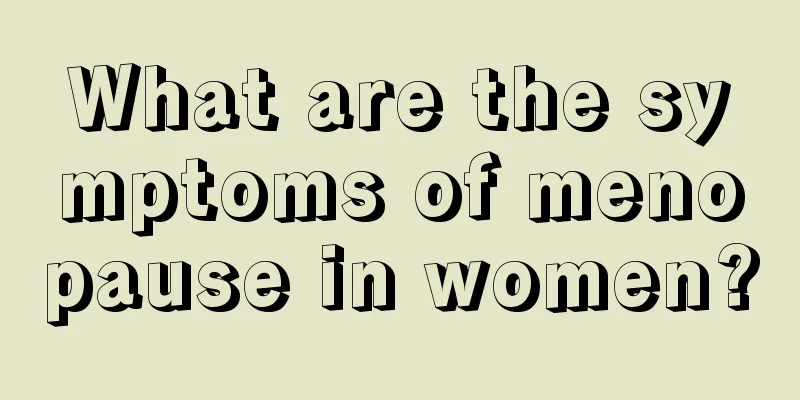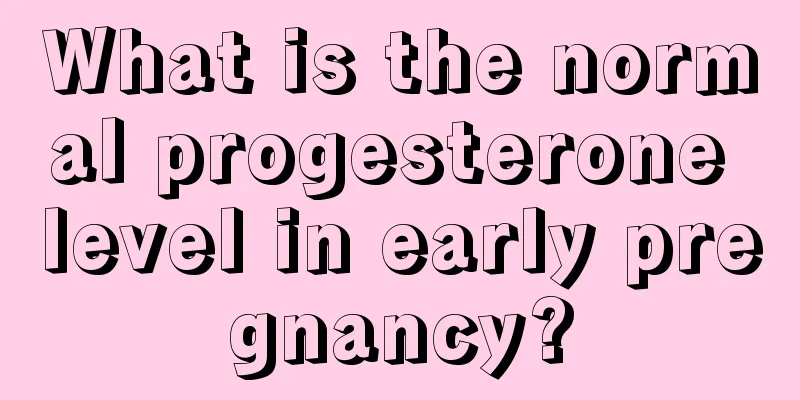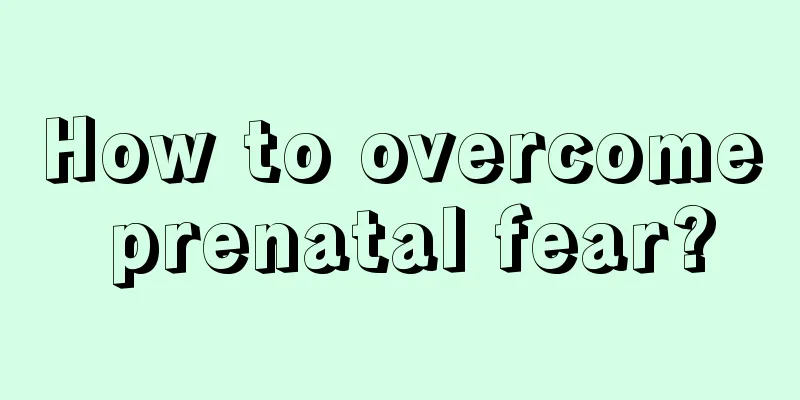What are the symptoms of menopause in women?

|
The symptoms of menopause occur after a woman's menstruation stops. This is mainly because after menstruation stops, the body's original endocrine system needs to adjust, which will cause some physical and psychological symptoms. If this situation is not treated and controlled in time, it will be very harmful to your health. So what are the symptoms of menopause in women? Let us introduce it below. Changes in menstrual rhythm: The cycle is prolonged, the intervals between menstruation are extended, or there is no menstrual period for two or three months, but it returns to its natural pattern after a few months. This alternation of amenorrhea and regular menstruation can last for one or two years. Some women have shorter periods and too many periods during a period of time. Changes in the appearance of menstrual blood: The color of the blood becomes lighter, pink, or even black, mixed with small blood clots and fiber fragments. The amount of menstrual blood also changes. For some women, the amount of menstrual blood gradually decreases; but there is no increase in bleeding or heavy bleeding. The length of the menstrual period also varies. Some women gradually get shorter, while for other women, the menstrual period is prolonged and can last up to 10 days. After menopause, about 10 to 20% of women will experience some symptoms, mainly including: facial flushing and fever, starting from the lower part of the face and spreading upward to the entire face, often with significant vascular dilation, redness, and sweating all over the body. At the same time, dizziness and vertigo may occur, and the degree of flushing varies. Sometimes it is limited to the face and neck, but it may also be frequent and severe. Autonomic nervous system disorders, numbness of the limbs, abnormal sensations in the extremities especially at night, cramps, heaviness in the lower limbs, as if the legs don't know where to put, pain in the lower abdomen, palpitations, pain in the precordial area, headaches, dizziness, insomnia and syncope; often irritable, emotionally unstable, prone to temper, and sometimes suspicious and depressed. The above introduction to the symptoms of female menopause is very clear. After a woman experiences menopausal symptoms, it is best to use medication to treat it. In addition, she should pay more attention to her lifestyle habits and try to control any mental irritability. Family and friends must comfort the patient more, so that better treatment results can be achieved. |
<<: What are the menstrual symptoms of menopause in women
>>: How to treat menopausal depression in women
Recommend
Picture of mold picked out by hand
Mold cannot usually be picked out by hand and nee...
What are safe and healthy contraceptive methods?
Safe and healthy contraceptive methods are a prob...
The dangers of applying olive oil to the belly during pregnancy
Pregnancy is an important stage in a woman's ...
How many eggs can you eat in a day? Eat only the egg white and not the yolk? Eight truths about eggs
Today, we are going to talk about eggs, which are...
When is the best time to check NT?
The NT test is a very important test for pregnant...
When is the best time to eat apples?
Apples are rich in nutrients. In addition to cont...
Precautions for sleeping position to protect the fetus during threatened abortion
For women who are preparing for pregnancy, they l...
What to do if you vomit during pregnancy
What should I do if I vomit during the third mont...
Do 30-year-old women suffer from severe hair loss? Experts suggest this!
Many women will experience severe hair loss when ...
Can I get pregnant if I have sex two days after my period?
Women's menstruation is actually a physiologi...
What are some ways to avoid pregnancy?
What are some ways to avoid pregnancy? There are ...
Do you know about breast surgery?
For many women who love beauty, they feel that th...
What is the injection for inducing labor?
Induced labor and abortion are two ways to end a ...
Enabling visually impaired patients to read without barriers
The 8th National Congress of the China Disabled P...
Can cataracts be cured with drops of medicine? Do it when you are "fully prepared"? Avoid these misunderstandings as soon as possible~
“Wait until the cataract is fully mature before d...









